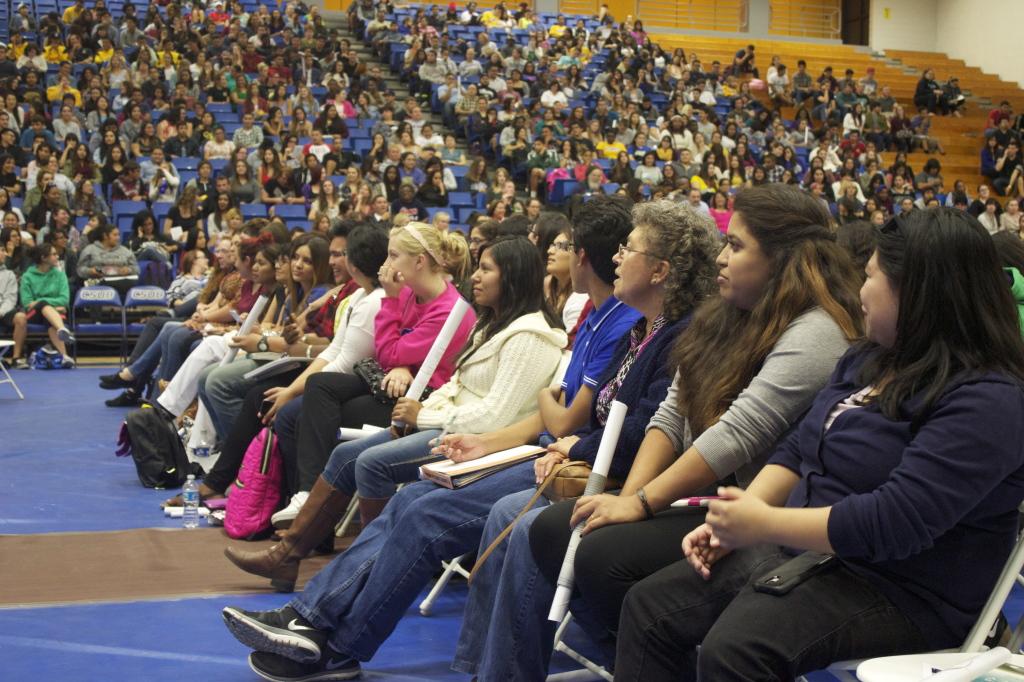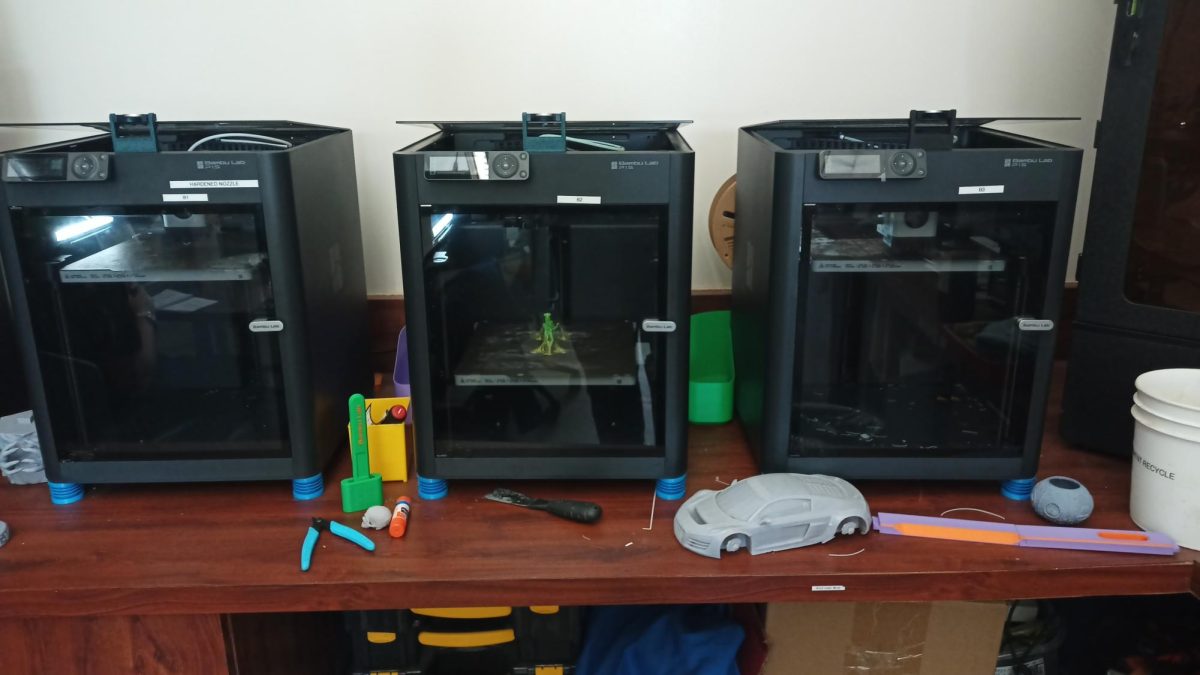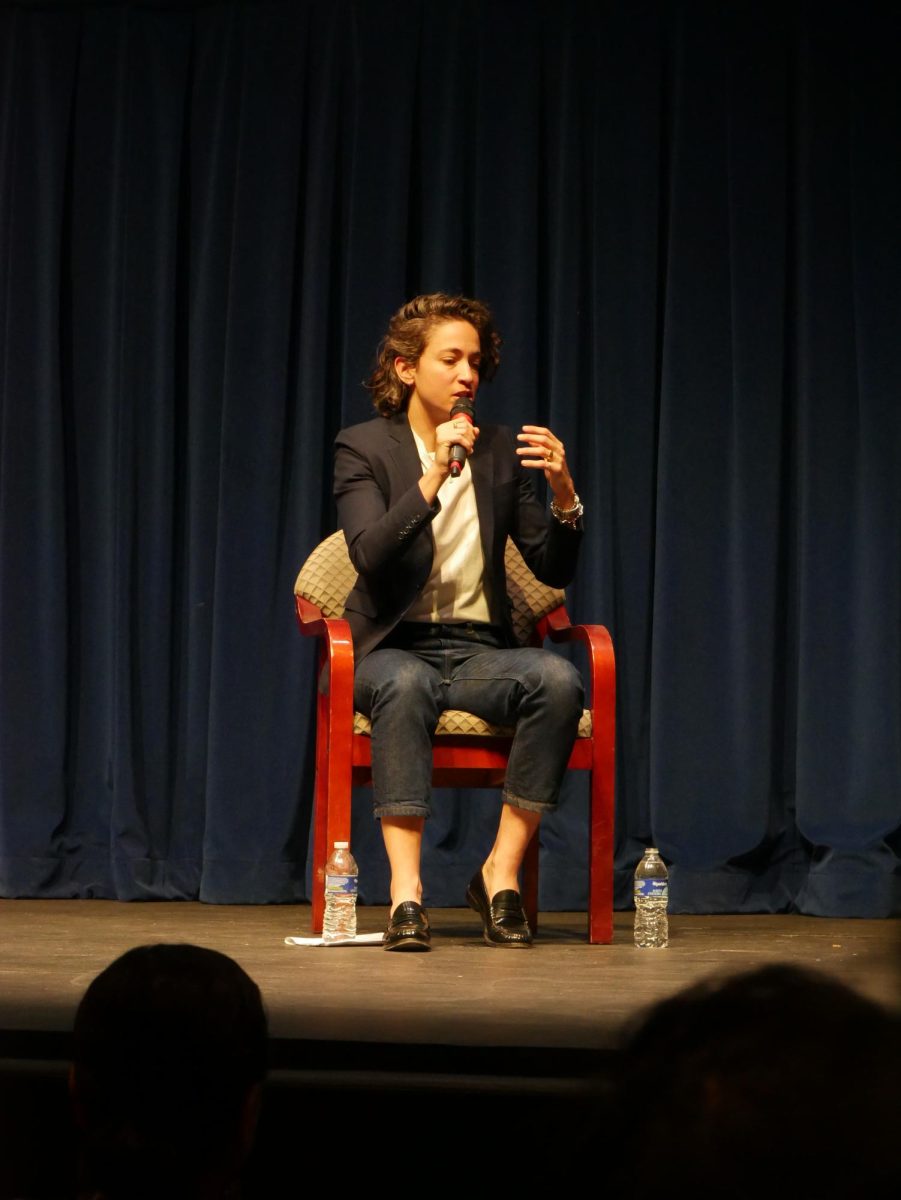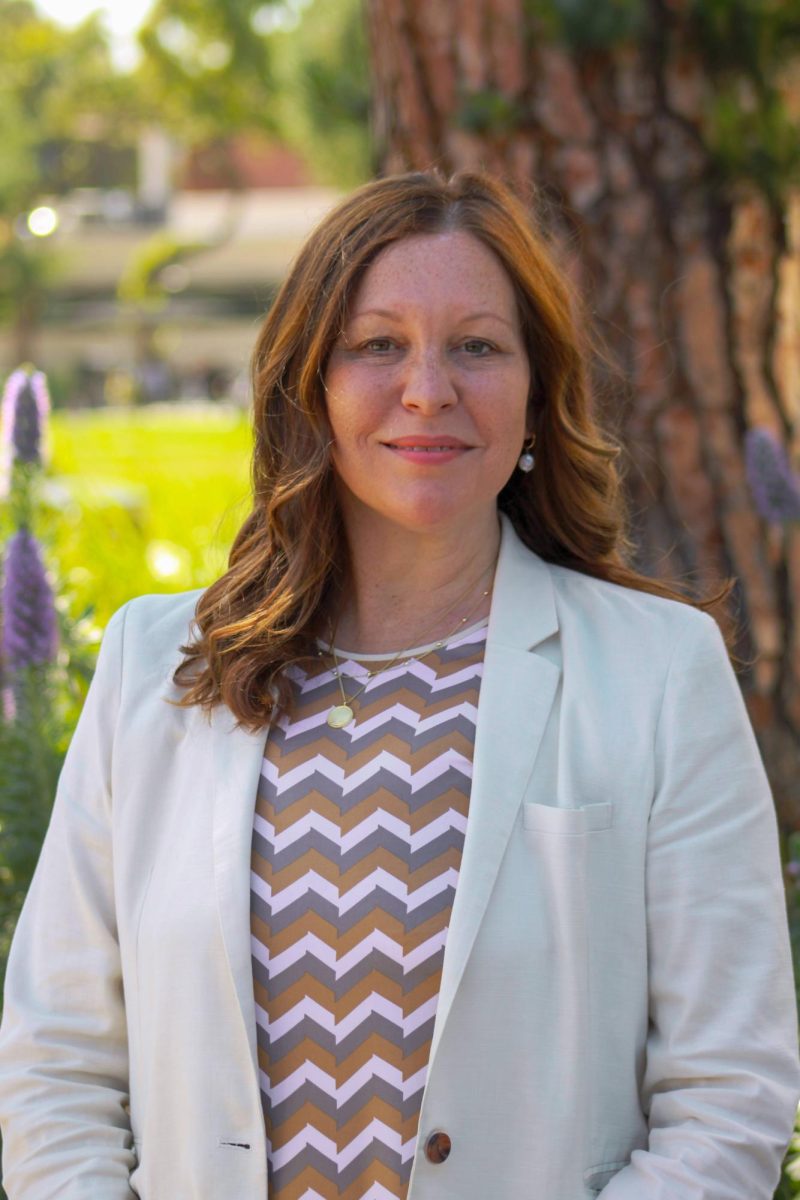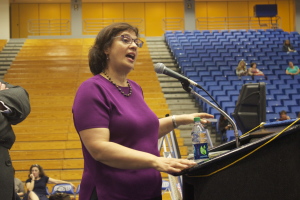
By Kassie Mullican
Staff Writer
“I think this moment is a true test for the United States. How does a great nation rise to a moment like this? How will we rise to the level of humanity that’s required of us?” Sonia Nazario asked the crowd at the closing of her discussion during the One Book, One Bakersfield, One Kern event Thursday, Oct. 30.
With hundreds in attendance, Nazario discussed her award winning book “Enrique’s Journey” based on the Los Angeles Times newspaper series, her journey to becoming a journalist, social issues surrounding immigration and how she feels we, the U.S., can push for a change.
Director of the 1st said Nazario’s book was chosen becasue of the topic and how it relates to the story of many of the students at CSUB.
Nazario’s journey as a journalist began when she was about 14 living in Argentina where her family moved back to after the death of her father when she was 13. It was during the middle of the “Dirty War” in the 1970’s.
“I remember walking down the streets of Buenos Ares with my mom and I saw blood on the sidewalk and I asked her ‘what happened here?’ And my mom said that the military had killed a couple of journalists. And I said ‘why?’ She said ‘Well they were trying to tell the truth about what is going on here,” said Nazario, “And so I decided at 14 staring at that blood I wanted to be a journalist too. I wanted to be a truth teller.”
Nazario has spent 20 years writing about social issues including hunger, drug addiction and immigration. “Enrique’s Journey” began with a discussion with her housekeeper, Carmen. “I’ve always thought of myself as a determined person,” said Nazario.
She said that Carmen had taught her what real determination was that day. Carmen had left 4 children behind in Guatemala to come to America to work to feed her family after her husband had left her for another woman, leaving the family in poverty. Her youngest child was only one year’s old and still breastfeeding when she had left.
Carmen had said that most days she could only feed them once a day maybe twice but her children would always go to bed hungry. At night she had to coax her children to lie on their bellies so their stomachs didn’t growl as much.
“It was that story that day that took me on my journey to Honduras, up the migrant routes through Mexico and into homes of dozens of women who were just like Carmen,” said Nazario.
She found that there was a shift on the types of immigrants entering unlawfully into the U.S. “51 percent of the immigrants coming in today unlawfully are women and children” said Nazario.
Each of the women’s stories were the same, they left their children behind in search of opportunity intending to only be gone a year or two. But it was taking more like 5 to 10 years for these mothers to earn enough to pay smugglers to bring their children. The children would begin to get desperate; if their mother’s weren’t coming back they would go to them.
Telling the story through the journey of one boy, Enrique, put a human face on immigration issues. Enrique was just five years old when his mother had left. He had told Nazario that he remembered his mother selling things from a wooden box and that he would play around her morning, afternoon and night as she worked. Then one day she was just gone.
After 11 years of not seeing his mother he set out to find her. He had no money so he traveled by hanging on the sides and tops of freight trains. Enrique didn’t know which way to go, just that he had to find his mom carrying the only thing he knew could lead him to his mother, a slip of paper with his mother’s number on it.
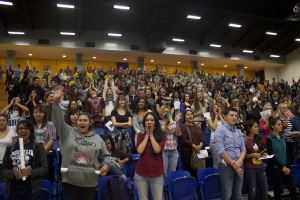
Thousands of children travel this same way each year, some as young as seven. Many kids don’t make this journey successfully. If they are not captured by the bandits or corrupt cops on the side of the road or thrown off by the gangsters who control the tops of the trains, many fall to get ripped apart by the train.
Today the journey is even more perilous because the new drug cartel zetas pay bounties for captured immigrants preferably children, because that little slip of paper they carry, just like Enrique carried, could be used to demand a ransom from the mothers.
After 8 attempts to get through Mexico to find his mother, Nazario met Enrique in Nuevo Laredo. “I spent weeks with Enrique watching his misery unfold so I could tell it to you. I went back to his grandmother’s house in Honduras and made the same journey, step by step exactly as he had done” said Nazario.
According to Nazario, children are crossing into the U.S unlawfully in record breaking numbers.
The shift has changed from that of economic reasons, to those of fear. These children are at our borders begging for safety, fleeing their homes for their lives. That have a government that cannot and will not protect them. They are more than illegal immigrants, they are refugees. “Our government must protect them,” said Nazario, “What we have seen this summer has been, in my opinion, try disgraceful. Too often this administration, this congress, they have pushed to undo a 2008 law that requires Central American children to get a full hearing before an immigration judge.”
They have to get full screenings from border patrol officers, whom they won’t open up to because they believe that the cops are all corrupt. Nazario claims that we have tried to these immigration cases out as soon as possible. Courts in Houston are telling these children they have one week to come back with their asylum cases prepared when most judges would tell you it takes a year or more to prepare a solid claim.
Seventy to 90 percent are seeing a judge without an attorney present. She recently witnessed a seven year old boy shaking before a judge because he was expected to argue his immigration case himself.
To allow these children to be safe, Nazario says we should increase the amount of refuges we take in to the pre-9/11 number of 127,000 instead of the 70,000 we take in now.
“If we all push with a little compassion, with a determination that I saw atop those freight trains to treat these refuges at our door better, to change conditions in these countries, slowly but surely I think we can change things so that mother’s never have to leave their children again,” said Nazario.
Jesus Rojas, as student at Bakersfield College said he was reading the book for his class and really wanted to hear from Nazario. He was inspired the most by the story of Olga, a women who
runs a shelter that treats dismembered immigrants.
Minerva Legorreta, a freshman at CSUB said she attended the event because she really likes the story and that many people could relate to it.
Victor Flores, a student from BC came with his girlfriend to the event. He came to the country when he was six and feels like he should get more. He works and pays taxes, but doesn’t get the same benefits as citizens.



